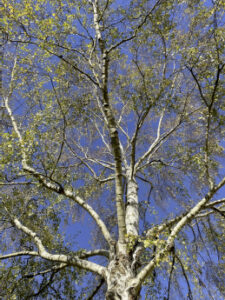Dave Dight
Here’s an evolutionary perspective on the perennial issue of belief in a ‘transcendent’ God, focussing on belief itself.
After lengthy evolution, the human brain, possibly the most complex object in the universe, is a composite, flexible and multifunctional organ with a recently-expanded cerebrum, largely due to our being a social species having competed with other hominins – all now extinct – in environmentally dynamic habitats. Cerebral function still dominates human cognition: rationality, language, imagination, memory, creativity etc. – all useful for warfare.
Belief systems are cerebral frameworks for meanings. Within religious narratives, they confer on believers privileged status, identity, belonging and purpose – offering coherence to their lives, rules for social organisation (morality) and solutions to existential concerns (like awareness of mortality), by positing a ‘transcendent’, benign, timeless reality – only accessible on belief. Hence believers can get upset when their cherished beliefs are challenged or exposed. Beliefs, expressed in language, often aren’t originally our own, some even lazily derived from social media. Language structures and orders thoughts, which are themselves abstractions and only partial representations of reality. Words simplify, confine, compartmentalise and categorise experience; they’re useful in communication but are also cognitive straitjackets: “… the letter killeth, but the Spirit giveth life”, (elders of Balby, 1656, Advices and Queries 1.01).
Similarly, religious beliefs (contrary to spirituality) define, label and divide people into groups, each sharing a mind-set usually claiming sole access to ‘truth’. Competition between groups over resources amplifies this, reinforcing separation and enmity. War begets war.

Zen Buddhism radically challenges language, the deeper meanings of words being in the spaces between them. This reality, like life, is impermanent and dynamic: there are no objects, only relationships; no events, only processes – and no compulsory beliefs. In contrast, attachments cause great suffering, especially the pernicious delusion of being a separate, permanent self. Quakers might say there’s only one Mind – and we’re all fragments of it. Silently contemplating the ‘inward light’, receptive minds flow together, beyond beliefs. By definition, this love can’t be adequately expressed, only realised and lived – countering the corrosive alienation of egocentric, cerebral power-games.
One might ask if a tree is worthy of reverence, possibly with Charles Windsor in mind. Jesus said: “Lift the stone, you will find me there”. Meaning: with effort, surprising truth is revealed. Plants transform sunlight into chemical energy, converting greenhouse gases and water into sugars whilst generating vital oxygen (reversing global warming). This process evolved over three billion years, powering all terrestrial life and linking astronomy with biology. It’s but one complex system among myriads in every green leaf. Its host of interacting molecular components, themselves complex and dynamic, are exquisitely regulated, operating harmoniously with daily and seasonal solar rhythms.
The deeper natural systems (including us) are examined, the more the complexity, intricacy and subtle sophistication of their intimate interconnectivity are revealed. We can marvel at this. Or we can exploit, plunder, pollute, and poison nature (including ourselves), whilst believing we’re the pinnacle of evolution. As the apex predator, we confuse competitive dominance with adaptive fitness. Competition, now within our species, gives new, urgent and self-inflicted existential threats, like weaponry and climate change. Our behaviour is no longer fit for ‘purpose’, i.e. survival. There appear to be no political solutions to this.
Jesus also said: “The truth will set you free” – from delusion to self-realisation (like Buddhist awakening). We are spiritual beings. To survive and flourish, responsibility must balance power. Spirituality is the development of this integrity, perhaps associated with brain structures ‘deeper’ than the cerebral cortex and accessible by a range of spiritual practices,
Beliefs have their place, but not in science. Like children, scientists play with ideas and entertain theories about them, supported or refuted by disciplined experimentation, yet never being proved (nor believed in), only superseded. Theories develop and grow with us. The quest for understanding is endless. Personally, I’d rather my mind is opened by wonder than closed by belief.
| Previous Article | Next Article |
Back to December 2022 Newsletter Main Page
Forty-Three Newsletter • Number 524 • December 2022
Oxford Friends Meeting
43 St Giles, Oxford OX1 3LW
Copyright 2022, Oxford Quakers
